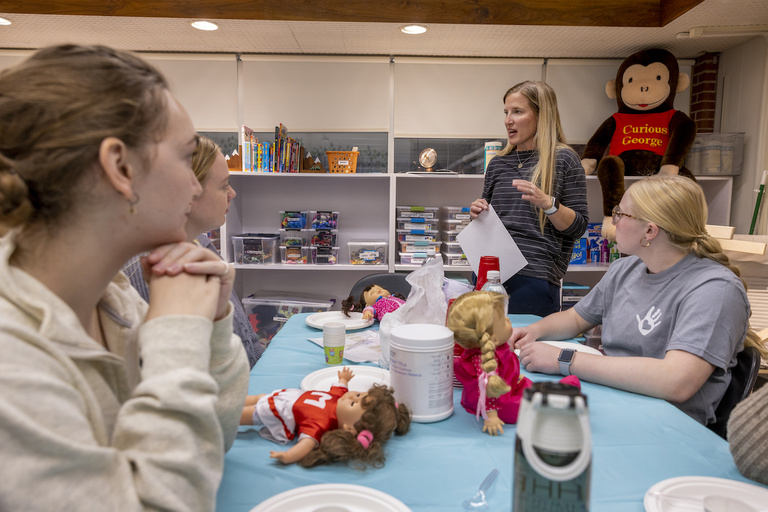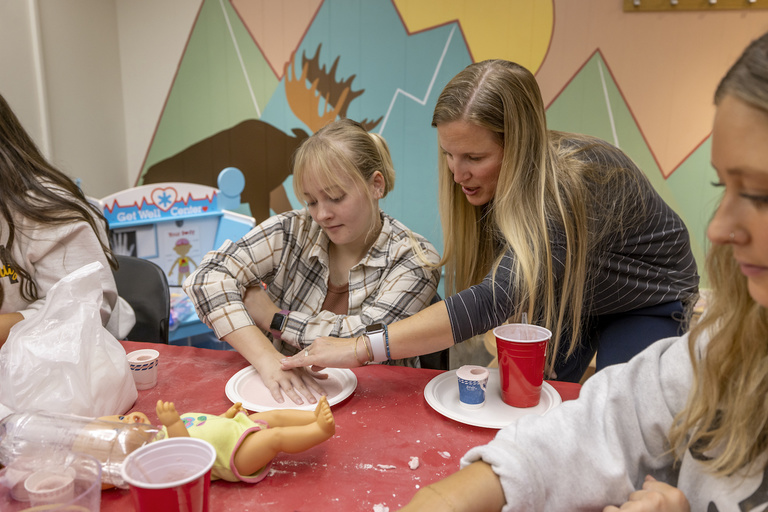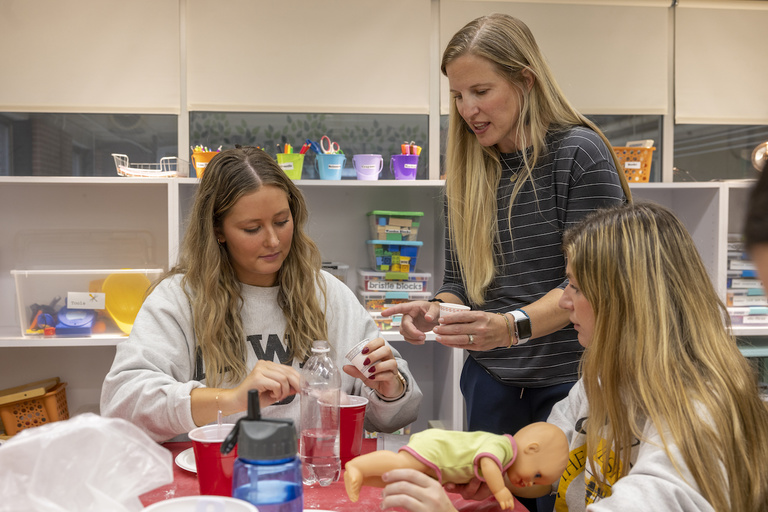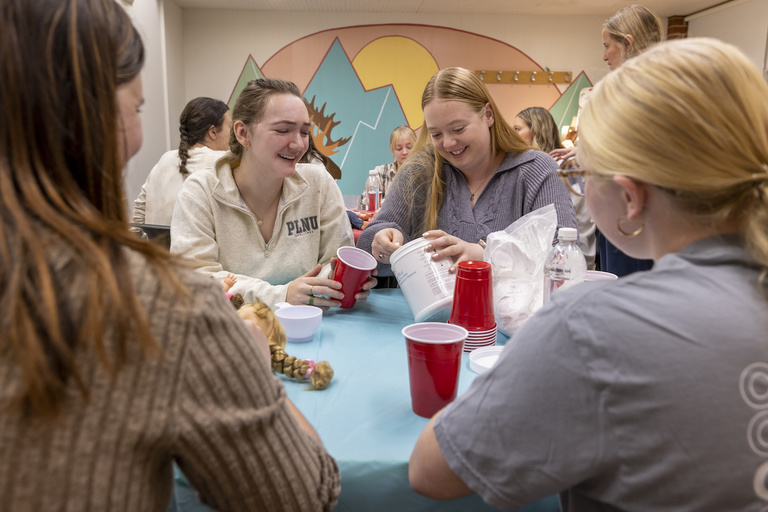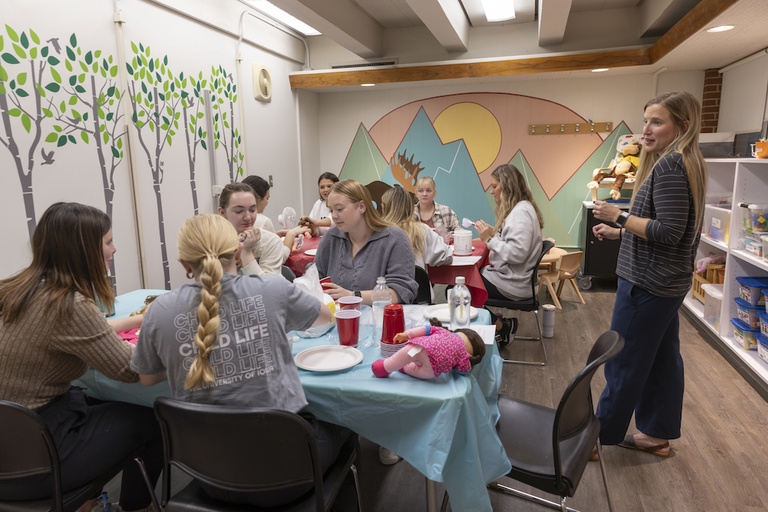By Charlotte Brookins
This semester marks the opening of the Department of Health, Sport, and Human Physiology’s (HHP) new Pediatric Play Lab, located in the Field House on the west side of the University of Iowa campus.
The lab was built as a location for real-world instruction both in and out of the classroom, allowing students to get a more hands-on approach to their studies. Leading the project is Emily Mozena, Program Director of Therapeutic Recreation and Child Life.
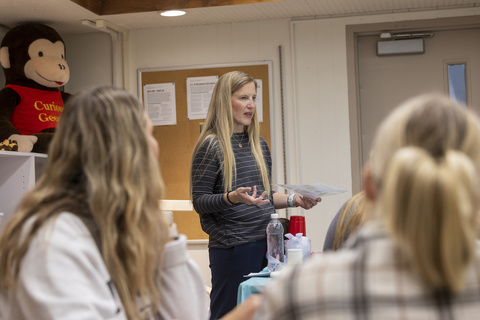
Therapeutic recreation is one of many undergraduate programs provided by the Department of Health and Human Physiology, focusing on treatment education for the improvement of the physical, social, cognitive, and emotional well-being of clients. Child life is a graduate program also offered by HHP, which centers on coping with stressful life experiences of pediatric patients.
“We have wanted to have a pediatric play space for teaching and research for years,” says Mozena. “We were able to find this space and we hope to use it for courses, demonstrations and discussions, and different group programming and opportunities with therapeutic recreation and child life.”
In addition to its use for hands-on learning in the classroom, the Pediatric Play Lab is also a space for facilitating research for both faculty and students.
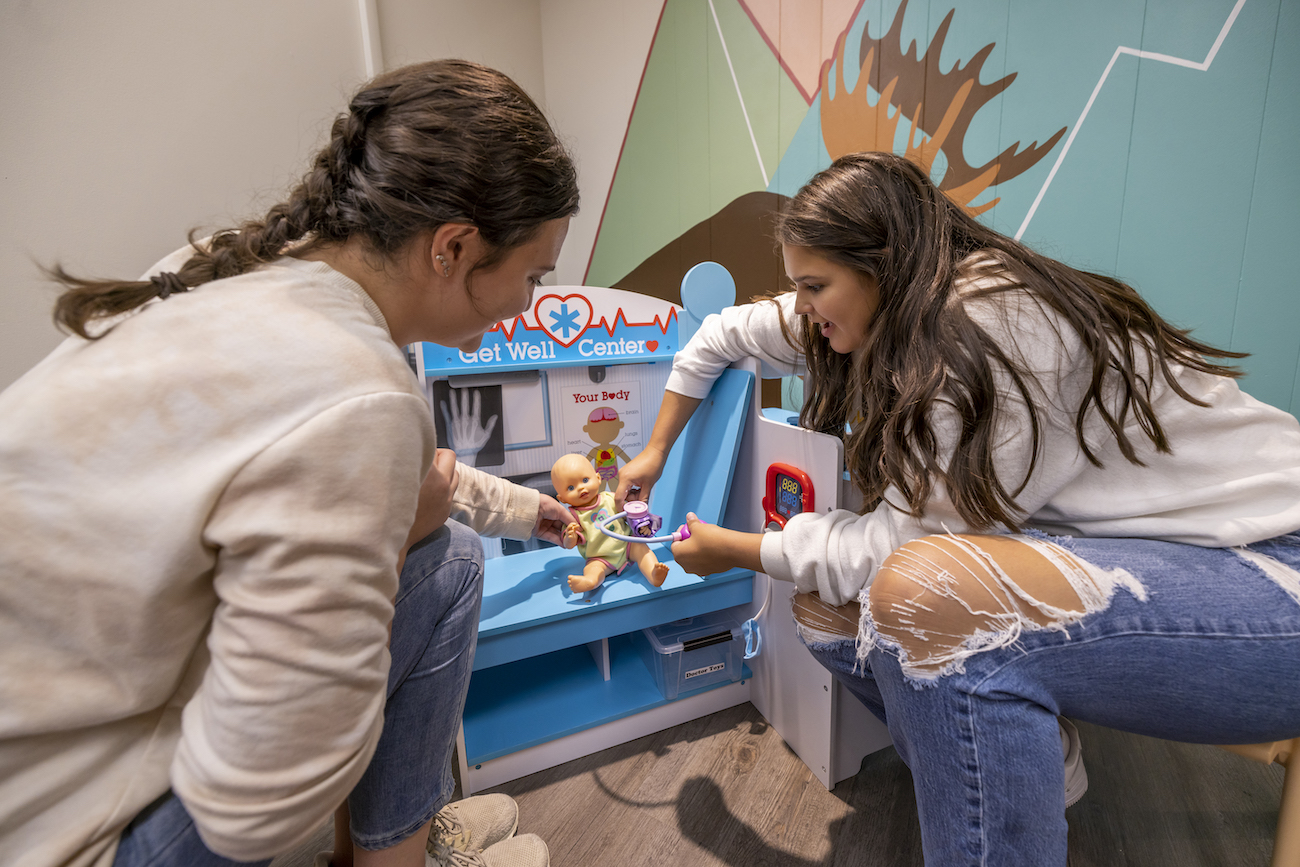
One of the projects currently making use of the new space is a continuation of the 2020 Pregnancy 24/7 research study by Kara Whitaker, associate professor and director of graduate studies for HHP, in which a group of pregnant women had their daily activity monitored to find connections between lifestyle behaviors and adverse pregnancy outcomes. These participants will now be returning with their children to examine how activities during pregnancy affect the health of children.
“We want to make the visit as enjoyable for the kids as possible,” says Whitaker on the lab’s environment. The room has been decorated with colorful murals and provides a variety of toys for the children, making the space apt for both learning and playing.
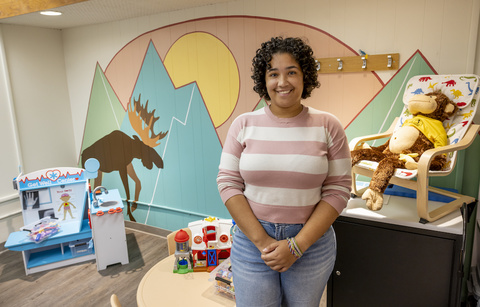
“My hope is that, eventually, all graduate classes for child life will be taught in the Pediatric Play Lab with hands-on opportunities built into every course,” Mozena elaborates. “I’m optimistic that there will be more opportunities for our students to have this space to learn, create research studies, and recruit more participants.”
On the back wall of the lab a painting has been emblazoned depicting the silhouette of a moose in front of a pastel mountain scene. The artwork, created by HHP graduate student Maya Greer, was created in honor of the late Ken Mobily, a professor in the Department of Health, Sport, and Human Physiology for 42 years, who died in December 2022. Mobily was an avid lover of the outdoors and a supporter of the Pediatric Play Lab from the beginning—this mural allows him to be remembered in the space he advocated for.
The current location of the Pediatric Play Lab is intended as a temporary placeholder to be eventually replaced with a larger space in the new Health Sciences Academic Building currently being built on the west side of campus. Upon the creation of the new building, the learning and research taking place—such as Whitaker’s—will be transferred to a larger lab in the new facility. Construction is anticipated to be completed in April 2025.
Photos taken by Jill Tobin
